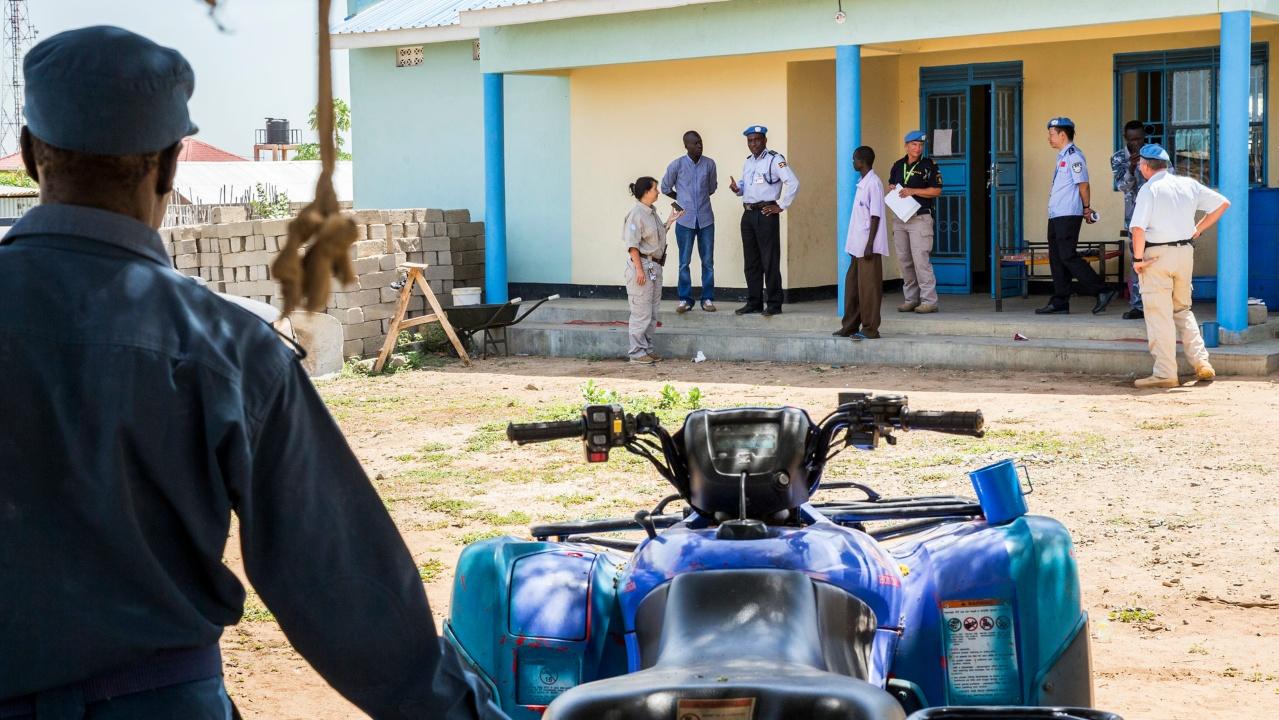Even while new technologies transform political protest, citizens continue to use their bodies in acts of civil resistance. In northern Uganda, citizens are using public nakedness to protest land dispossession by an increasingly authoritarian state, which grants the protester forms of power and highlights constraints on political speech.
How can citizens living under hybrid and authoritarian regimes exercise political voice? Recent waves of protests from Hong Kong to Iraq have illustrated the risks taken by ordinary citizens when they take to the streets to protest such regimes – ranging from arrest and detention to physical harm and even death. Rulers have long leveraged military force to limit collective political action, and today this is further paired with growing surveillance technologies that allow targeted violence to control entire populations.
Though many expressed hope that new technologies would strengthen civil society, in practice, state actors and political elites are often able to turn these new tools to their advantage, such that some researchers have identified mixed effects on democracy. Nevertheless, ordinary citizens continue to employ a host of other repertoires – both novel and timeworn – to protest oppression and militarism, including humour, art, or rudeness.
In our new article in Civil Wars, we join this conversation through a study of an ancient form of protest: the baring of naked bodies. Public nakedness has been documented as a means of political protest worldwide, in vastly different cultural contexts, from India to Russia. It has been used from pre-colonial times to the modern day. Although it is often marginal to discussions of non-violent and popular protest, studying how it is used can help understand how ordinary citizens oppose violent and repressive rule.
Our article looks at naked protest in the context of northern Uganda to draw out broader insights about public protest in politically repressive contexts. Here, naked protest is most commonly used in interpersonal and individual contexts, when a person – typically an elder – bares a naked breast or genitalia and, pointing it at the offending party, issues verbal curses such as: ‘I am the one who gave you life, if you are the one who stole this money then you will continue to steal your entire life and you will not be able to stop’. This curse is understood as a last resort, an act that breaks social ties and can even kill its victim. It is typically used by elders to punish youth or children who have repeatedly refused to adhere to the gendered, gerontocratic social order.
Nakedness as a form of collective public protest has been used across Uganda by ordinary citizens when there appears to be no alternative repertoire at their disposal, as a result of a militarised and shrinking democratic space. Such protests have often occurred in relation to land alienation, where citizens face forced displacement. In another highly publicised case, academic and activist Stella Nyanzi stripped to her underwear to protest work conditions at Makerere University, and women in Kampala also used it to protest police brutality.
Starting from this context, we examine a well-known case of naked protest used in Apaa, northern Uganda, when elderly women stripped naked to oppose land alienation. We find that by baring their naked bodies, citizens employ three types of overlapping and entwined power to confront the much more powerful state in a highly militarised public sphere.
First, by stripping, citizens exercise biopower. By showing that the state cannot discipline or govern their bodies, they challenge the basis of the state’s authority as an entity that governs its citizens. Second, the gendered nature of the naked body imbues this type of protest with symbolic power – for women, related to the female body as a thing to be protected as a ‘wife’ or ‘mother’ of the community. This type of symbolic power shifts the terms of protest from a political to a moral terrain, which is important for ordinary people seeking to make claims in a militarised public sphere. Finally, drawing on the curse derived from interpersonal usages, citizens exercise cosmological power, particularly relevant for protesting repressive regimes because the curse can strike at any time after the protest has occurred.
Returning to that day in Apaa, the naked protest of the elderly women achieved its short-term goal – the military and government officials who had come to demarcate the land left in peace. However, there have subsequently been repeated instances of violence in Apaa to remove people from the land and hand it over to private investors, and residents have employed various other tactics to resist. Thus, while public nakedness may be one way for citizens to engage militarised regimes, it also demonstrates that the space for public dissent is extremely limited, and often ineffective. To strip naked is a last resort, and its use reflects the constraints placed on exercising political voice and resultant obstacles to instigating collective political action.
Photo by Random Institute on Unsplash.





